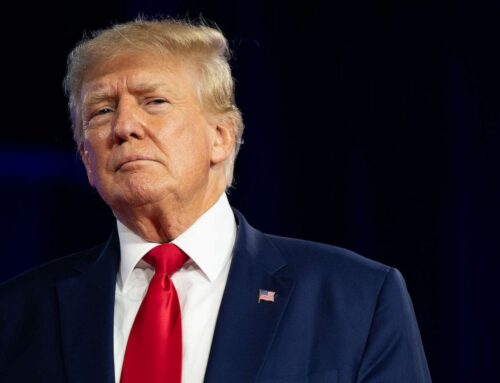
Conservative MP Kyle Seeback said pro-lifers need to look at the individual candidates and their views, and not the party label when deciding for whom to vote on election day.
At the Campaign Life Coalition National Pro-Life Conference April 5, Conservative MP Kyle Seeback (Brampton West) said that pro-life Canadians should vote for candidates who share their views about abortion if they want to elect a parliament willing to pass pro-life legislation.
Seeback, who is running in the new riding of Brampton South in the next election, said that when he was first elected three years ago, he would have told people to “vote Conservative” if they wanted to see pro-life legislation passed in Canada. He then added: “I don’t agree with that anymore. You have to find the right person to vote for, regardless of the party affiliation on this issue.”
It is a message that former Liberal MP Tom Wappel has shared with pro-life audiences for years. He also spoke during the national convention and he repeated the message he has given dozens, if not hundreds of times: if you do not get involved you are ceding the political arena to people who will get involved and do not necessarily share your values.
Seeback urged attendees to get involved in the nomination process at the riding level where, due to the smaller numbers involved, each vote cast holds a disproportionate value. He said there are nominations decided by single votes and others in which a small group or family could swing the difference in the outcome.
He reiterated that politics is a “numbers game” and that he realized a pro-life majority in Parliament was necessary regardless of partisan make-up, when Stephen Woodworth’s Motion 312 was defeated in a vote of 91 to 203. Seeback said some pro-lifers saw the 91 votes calling for continuing the parliamentary debate on preborn human life as a “victory” but “maybe it’s my background in sports” but he considered the vote a defeat. It was eye-opening and made him realize that “if we want real progress on life issues” in Canada, there must be a pro-life majority in Parliament.
The Brampton MP said that the answer to the “enormous” political pressure on members of Parliament to vote against any pro-life business in the House is a groundswell of “political activism” by the grassroots to deliver more pro-life votes to the nation’s capital, adding “we need more people running for office who are committed to being pro-life.”
Seeback also criticized the many MPs who claim to be pro-life but who will not vote that way. “I can tell you that during that Stephen Woodworth motion, so many of my colleagues came up to me and said ‘I’m pro-life but …’ well, I’m not sure what that means, to me it means you’re not pro-life.”
Seeback said that if a candidate or MP is truly pro-life they will sign the CLC questionnaire. Leading up to the federal election, all Liberal and Conservative candidates are contacted and asked to fill out a six-question survey of their views on abortion and euthanasia. They were once labeled pro-life, pro-life with exceptions, educable, and not pro-life or pro-abortion, but now CLC rates them with a green light (pro-life), yellow light (needs more information or has a mixed record), and red light (pro-abortion).
CLC has difficulty getting responses because party headquarters typically pressure candidates not to sign questionnaires.
Seeback admitted being pressured by “political operations” during the last election, but said that any candidate unwilling to “sign a piece of paper” then as an MP they are unlikely to stand up against the party or prime minister’s office in Ottawa to vote pro-life if he or she is elected. “When the real pressure comes when you’re in Ottawa and they’re saying: ‘You’re voting against the prime minister,’ I don’t think that person is going to stand up.”
He urged everyone to become involved in the major parties in their riding. “That’s my message to everyone today. Please look where you live. Support your pro-life candidates. If they don’t have one, get someone.” He said if there was not a pro-life candidate already running, “look at yourself … you can do it, I did it.” Asked specifically about the Christian Heritage Party or pro-lifers running as independents, both Seeback and Wappel said it is very difficult for such candidates to win an election because most people vote on the party brand.
Wappel shared his own story of winning the Liberal nomination in 1988 against the party’s preferred candidate and how he signed up 750 members from his social circle, church, community organizations, and through CLC. He recounted how his position was insufficiently pro-life – “personally pro-life, but …” – for one local Knight of Columbus, Dan McCash, who convinced Wappel to meet with CLC national president Jim Hughes.
He said that the reason he won despite signing up hundreds of fewer members than his opponent, Patrick Johnson, was that his supporters were more determined to win and showed up for the vote. But their influence was great and that they helped decide who everyone else in the riding would get to vote for come election day. “If not you,” Wappel asked, “who?” He added: “If not you, people who disagree with you.”
Wappel said that he had plenty of colleagues who gave him “urinal support” – “MPs who say nothing in caucus but congratulated me when standing beside me in the bathroom.” Wappel said pro-life MPs need the prayers and support of pro-life voters. “It is difficult to be a pro-lifer on Parliament Hill,” he said. “Don’t leave us alone.”
Hughes told The Interim that he was heartened by the speeches of Seeback and Wappel and reinforced their message that pro-lifers must get involved. “That’s what CLC does, link up pro-life voters with pro-life candidates for nominations and pro-life candidates in the general election to help elect a pro-life majority.” He said that is not possible if “pro-lifers sit at home complaining about the lack of supportable candidates, but won’t get involved in the nomination meetings.”




